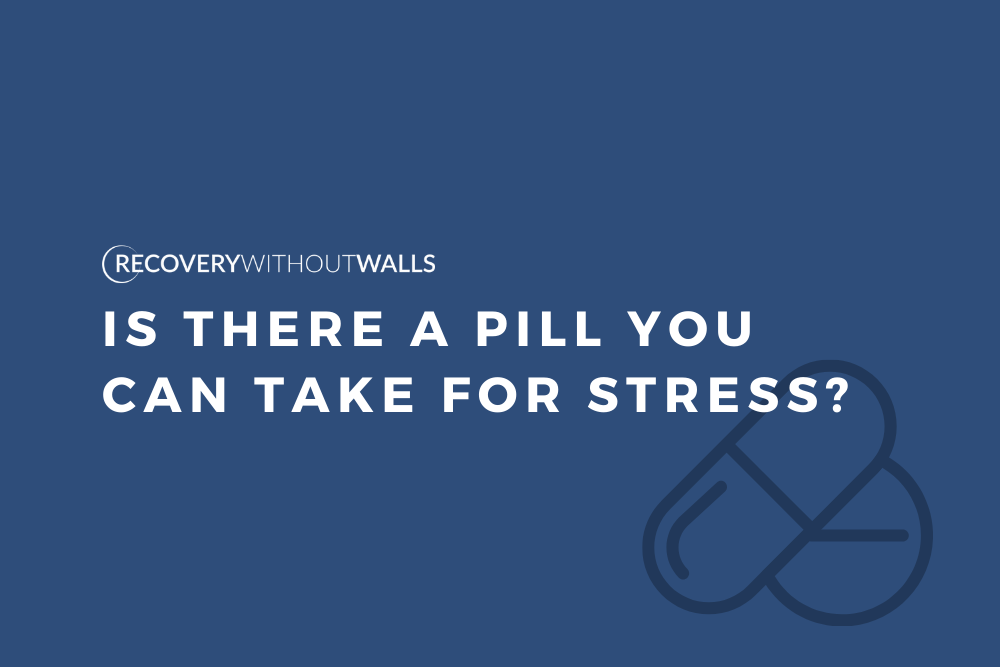
Is There a Medication for Stress?
Feeling overwhelmed by the circumstances of life often leads to stress, anxiety, and an inability to accomplish necessary tasks. When you’re feeling this way, it’s natural to want to seek relief, but some solutions can cause more problems than they solve. Let’s look at some of the ways you can manage your stress by engaging in healthy practices.
Confronting Feelings of Stress
If you are beginning to feel like life is unmanageable, you may try to look for a “quick fix” in stress-relieving medication. The problem with this is that it does not confront the deeper issues and only masks your symptoms. Additionally, certain prescriptions come with a risk of physical and psychological dependence. Stress can be a major contributing factor to addiction as people attempt to avoid the emotions attached to their situation.
Proper stress management hinges upon your ability and willingness to confront the things that are negatively affecting you.
To begin this process, the first step is to spend time reflecting on your situation. When you are feeling overwhelmed, it can be difficult to identify which causes are really impacting your mood. Sometimes, it’s a combination of many different stressors. In other cases, you may be able to point to a specific situation that is causing you anxiety.
If you’re having trouble determining what the source of your emotions is, take a few minutes to write out a list of potential triggers in your life. Then, consider each item and determine what is making it a source of stress. If you can’t pinpoint a direct cause for a certain bullet point, cross it off your list. As you narrow your focus to the specific circumstances increasing your anxiety, you can then begin to address those emotions properly.
Managing Stress Without Medication
Now you know what’s upsetting you. The next step is to begin addressing your symptoms. Healthy stress management techniques both work to alleviate the effects of your anxiety and provide long-term strategies you can practice when these feelings return.
Here are some of the best techniques for managing your anxiety both in the present moment and in the future:
Creating an Exercise Routine
Developing good habits helps both your physical and mental well-being. On a physical level, engaging in an exercise routine and eating a nutritious diet improve heart and lung functioning. This gives your body the fuel needed to handle the changes you experience. By maintaining a healthy weight and eating habits, your energy levels remain stable, and stress has lessened effects on your body. There’s also an emotional benefit to physical wellness. Mentally, such routines increase serotonin in the brain, contributing to an improved mood and less anxiety.
Developing New Skills
Occupying your brain with something new can be a quick cure for overwhelm. The next time you feel stressed out, distract yourself with an exciting activity. Commit to spending a few minutes each day on developing a new skill; that way, when you’re feeling anxious, you’ll have something you can turn to for comfort. Music has proven anxiety-reducing benefits, so consider learning an instrument. The more you can engage your mind with a new skill, the better it will serve as a means of stress relief.
Engage in Mindfulness Practices
Mindfulness practices are extremely useful for refocusing your attention. Mindfulness can be anything from meditation to a nature walk to yoga. If you’re not sure where to start, there are plenty of free apps available to guide you through the process.
Another easy way to engage in this practice is to spend time outside without any distractions. Leave your cell phone at home and leave the house. Go on a walk in nature and make note of the unique animals and trees you see along the way. You might be amazed by how quickly your mind lets go of your stress in favor of this relaxing experience.
Stress and Addiction Support
If you’ve previously developed unhealthy habits to manage your anxiety, including substance use, it may be time to seek professional support. Turning to a substance to manage stress creates harmful patterns that fail to address the root causes of your anxiety.
At Recovery Without Walls, we can help you heal from addiction while helping you to cope with life’s challenges. If you need more support for a substance use disorder, contact us today to learn about our program offerings.




